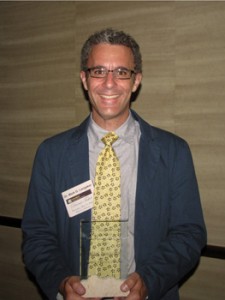As the end of another semester and year approaches, I find myself looking to the future, defining new goals, and exploring exciting possibilities, especially since this is the new normal at the UT Libraries today! However, I recently received an email that made me reflect on a past partnership that has blossomed into something greater than I ever anticipated.
The email came from Lisa Hernandez, currently the Pharr-San Juan-Alamo College, Career & Technology Academy Librarian and the Texas Library Association’s Librarian of the Year. In 2013, Lisa had been one of ten Texas high school librarians selected to attend the UT Libraries Information Literacy Summit, a day long summit about information literacy. Information Literacy (IL) is broadly defined by the ability to find and think critically about information and is not only a crucial skill for life-long learning, it is also one of the six requirements of UT’s School of Undergraduate Studies Signature Course program, a required interdisciplinary foundation course for all incoming UT freshman.
During the Summit, high school librarians from across Texas and librarians from the UT Libraries Teaching and Learning Services department shared expertise, identified overlapping skills, and created mutually-beneficial instructional content in order to better understand the types of issues and needs we have at both ends of the high-school to college transition. UT librarians shared real syllabi used in freshman courses and we worked collaboratively to design activities and assignments that would help augment information literacy development at both levels, a need identified in national research conducted by Project Information Literacy.

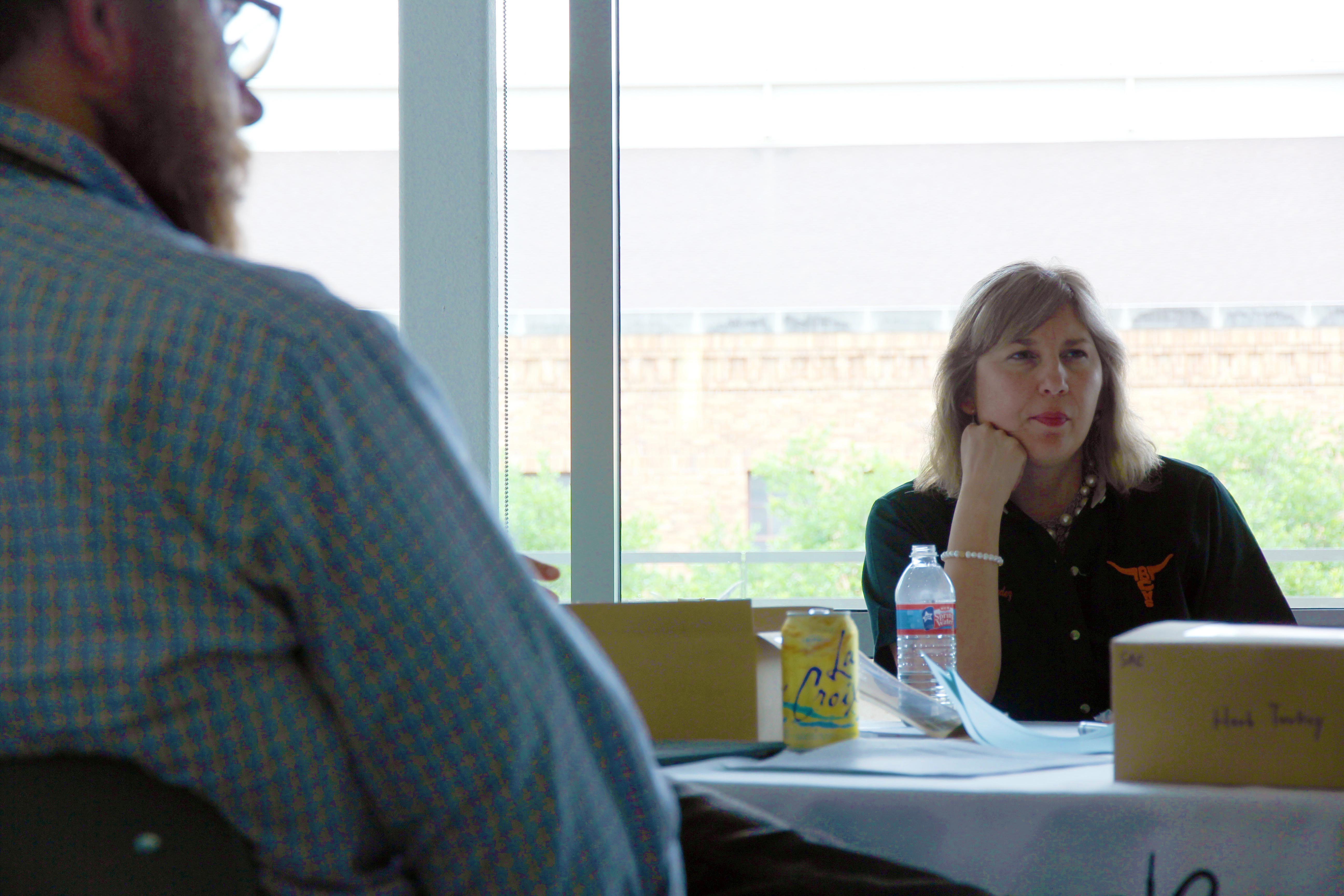
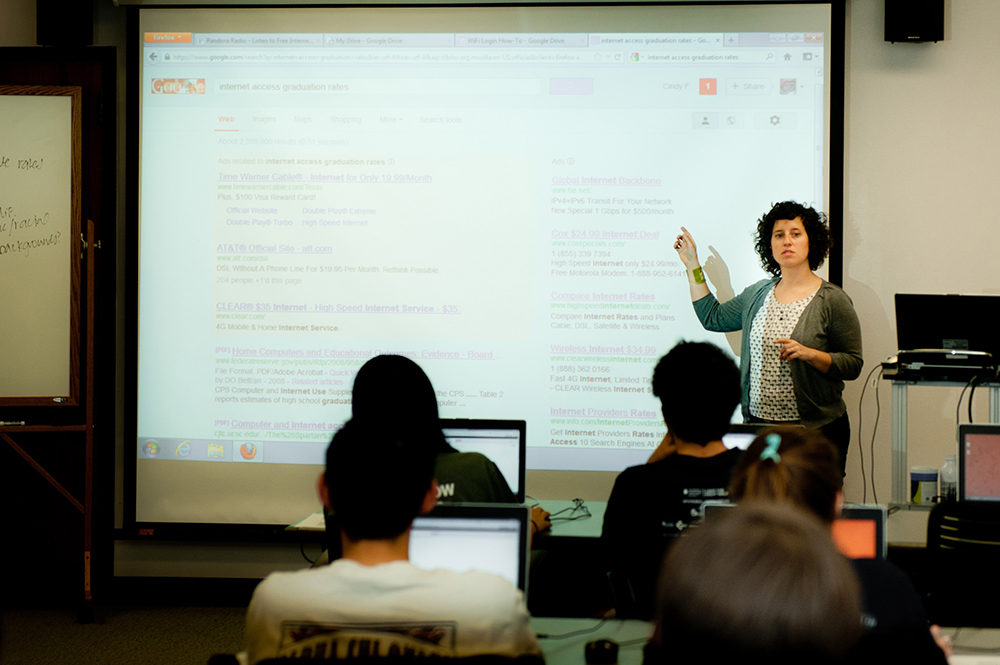
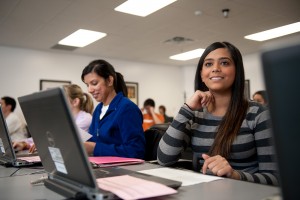

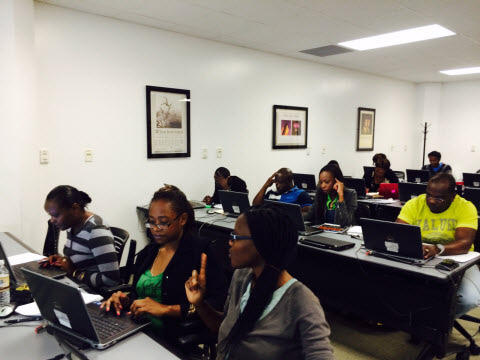




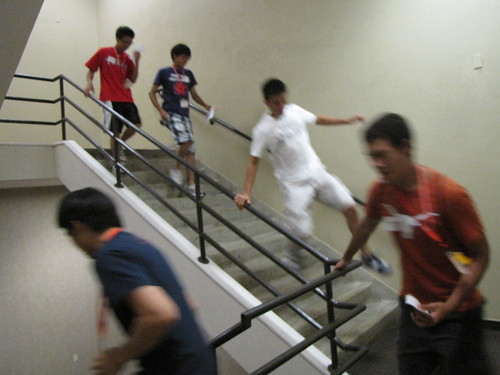 On Saturday, July 24,
On Saturday, July 24, 
